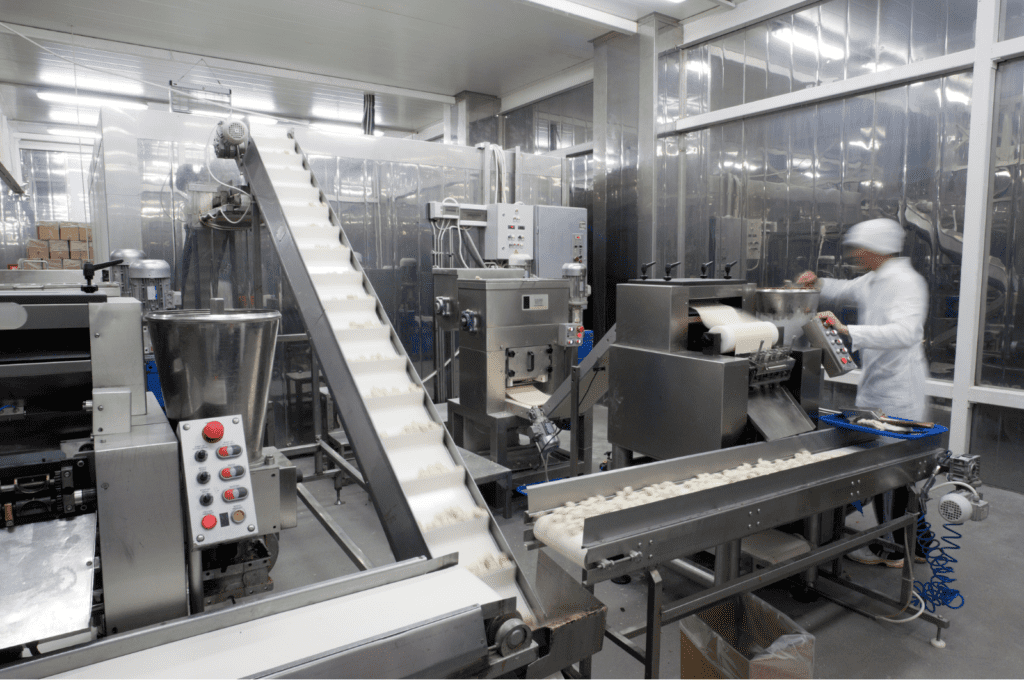The pet industry has been experiencing a significant transformation over the past decade, driven by increasing pet ownership and changing consumer preferences. In 2024, the pet treats manufacturing sector stands at the forefront of this evolution, embracing new trends, technologies, and market dynamics. This blog explores the key developments in the pet treats industry, highlighting the latest trends, innovative products, and insights into the market landscape.

Introduction
The pet treats market has grown substantially in recent years, fueled by the rising number of pet owners who view their pets as family members. This shift in perception has led to increased spending on pet care, including premium treats that cater to specific dietary needs and preferences. In 2024, the pet treats manufacturing industry is characterized by a focus on health and wellness, sustainability, and innovation.
Health and Wellness Trends
Natural and Organic Ingredients
One of the most prominent trends in the pet treats industry is the demand for natural and organic ingredients. Pet owners are increasingly concerned about the health and well-being of their furry companions, leading to a preference for treats that are free from artificial additives, preservatives, and fillers. Manufacturers are responding by sourcing high-quality, organic ingredients and emphasizing transparency in their ingredient lists.

Functional Treats
Functional treats that offer specific health benefits are gaining popularity. These treats are formulated to address various health issues such as joint support, dental health, digestive health, and skin and coat care. Ingredients like glucosamine, probiotics, and omega-3 fatty acids are commonly used in functional treats to promote overall wellness.
Customized Nutrition
Advancements in technology and nutrition science have enabled manufacturers to offer customized pet treats tailored to individual pets’ needs. Companies are using data-driven approaches to create personalized treat formulations based on factors like age, breed, size, and health conditions. This trend towards customization ensures that pets receive optimal nutrition and health benefits from their treats.

Sustainability and Ethical Practices
Eco-Friendly Packaging
Sustainability is a major concern for consumers in 2024, and pet treat manufacturers are taking steps to reduce their environmental footprint. Eco-friendly packaging solutions, such as biodegradable or recyclable materials, are becoming more common. Manufacturers are also exploring innovative packaging designs that minimize waste and enhance product freshness.
Ethical Sourcing
Consumers are increasingly conscious of the ethical implications of their purchases. Pet treat manufacturers are responding by adopting ethical sourcing practices, such as sourcing ingredients from local, sustainable farms and ensuring fair labor practices. This commitment to ethical sourcing not only appeals to conscientious consumers but also contributes to the overall quality and safety of the products.

Plant-Based Treats
The plant-based movement has made its way into the pet treats industry. Plant-based treats, made from ingredients like lentils, chickpeas, and sweet potatoes, offer a sustainable and nutritious alternative to traditional meat-based treats. These treats are particularly appealing to pet owners who follow a plant-based lifestyle themselves or are looking for options that align with their environmental values.
Technological Innovations

Smart Treat Dispensers
Technology is playing a significant role in the pet treats industry, with the introduction of smart treat dispensers. These devices allow pet owners to monitor and control treat dispensing remotely via smartphone apps. Smart dispensers can be programmed to dispense treats at specific times, track treat consumption, and even provide insights into a pet’s overall health and behavior.
Advanced Manufacturing Techniques
Innovations in manufacturing techniques are enabling the production of high-quality, consistent pet treats. Techniques such as freeze-drying and extrusion are used to preserve the nutritional integrity of ingredients while enhancing the taste and texture of the treats. These advanced methods also allow for the incorporation of a wider range of functional ingredients.
Blockchain for Transparency
Blockchain technology is being utilized to enhance transparency and traceability in the pet treats supply chain. By leveraging blockchain, manufacturers can provide detailed information about the sourcing, production, and distribution of their products. This level of transparency builds trust with consumers, who can verify the authenticity and quality of the treats they purchase.

Market Insights and Consumer Behavior
Demographic Shifts
The pet treats market is influenced by changing demographics, with millennials and Gen Z emerging as the dominant consumer groups. These younger pet owners tend to prioritize health, sustainability, and ethical practices, driving demand for high-quality, eco-friendly, and ethically sourced pet treats. They are also more likely to seek out innovative and customized products that cater to their pets’ unique needs.
E-Commerce Growth
E-commerce continues to be a significant growth driver for the pet treats industry. Online platforms offer convenience, a wide range of product choices, and the ability to compare prices and read reviews. Subscription services for pet treats are also gaining traction, providing pet owners with a hassle-free way to receive regular deliveries of their favorite products.

Premiumization
The trend towards premiumization is evident in the pet treats market, with consumers willing to pay a premium for high-quality, specialized products. Premium treats often feature unique ingredients, superior nutritional profiles, and attractive packaging. This trend is supported by the perception that investing in premium treats contributes to the overall health and happiness of pets.
Case Studies of Leading Pet Treats Manufacturers
Case Study 1: Wellness Pet Company
Wellness Pet Company is a leading manufacturer known for its commitment to natural and holistic pet nutrition. In 2024, Wellness Pet Company has expanded its product line to include a range of functional treats targeting specific health concerns. Their “Wellness Core” line features treats infused with ingredients like turmeric for anti-inflammatory benefits and cranberries for urinary tract health. By prioritizing transparency and sustainability, Wellness Pet Company has built a loyal customer base that values quality and integrity.

Case Study 2: GreenPaw Treats
GreenPaw Treats is a pioneer in the plant-based pet treats market. Their innovative approach to using plant-based ingredients has resonated with environmentally conscious pet owners. GreenPaw Treats’ “Veggie Delight” line includes treats made from nutrient-rich vegetables like kale, carrots, and peas. The company also utilizes eco-friendly packaging and partners with local farmers to ensure ethical sourcing. GreenPaw Treats has successfully positioned itself as a leader in sustainable pet nutrition.
Case Study 3: TechPet Innovations
TechPet Innovations has revolutionized the pet treats industry with its smart treat dispenser technology. Their “PetPal” smart dispenser allows pet owners to remotely control treat dispensing, monitor consumption, and receive real-time health insights. The device is equipped with sensors that track a pet’s activity levels and adjust treat portions accordingly. TechPet Innovations’ focus on integrating technology with pet care has garnered attention from tech-savvy pet owners looking for convenient and intelligent solutions.

Challenges and Opportunities
Supply Chain Disruptions
Like many industries, the pet treats sector faces challenges related to supply chain disruptions. Issues such as ingredient shortages, transportation delays, and increased costs can impact production and availability. Manufacturers are exploring strategies to mitigate these risks, such as diversifying suppliers, investing in local sourcing, and implementing robust supply chain management practices.
Regulatory Compliance
Ensuring regulatory compliance is a critical aspect of pet treats manufacturing. Companies must adhere to strict standards for ingredient quality, labeling, and safety. Staying up-to-date with evolving regulations and maintaining rigorous quality control processes are essential to avoid recalls and maintain consumer trust.

Innovation and Differentiation
The competitive landscape of the pet treats industry necessitates continuous innovation and differentiation. Manufacturers must stay ahead of trends and consumer preferences to develop products that stand out in a crowded market. This requires ongoing investment in research and development, as well as a willingness to experiment with new ingredients, formulations, and technologies.

Future Outlook
The future of the pet treats industry looks promising, with continued growth and innovation on the horizon. As pet ownership continues to rise and consumer preferences evolve, manufacturers have ample opportunities to meet the demands of health-conscious, environmentally aware, and tech-savvy pet owners. Key areas of focus for the future include:
- Sustainable Practices: Continued emphasis on sustainability, including eco-friendly packaging, ethical sourcing, and plant-based products.
- Personalization: Expansion of personalized nutrition solutions, leveraging data and technology to create customized treat formulations.
- Health and Wellness: Development of new functional treats that address emerging health concerns and promote overall well-being.
- Technological Integration: Further integration of technology in pet care, including smart dispensers and health monitoring devices.
- Global Expansion: Exploration of new markets and expansion into emerging regions with growing pet ownership rates.

Conclusion
The pet treats manufacturing industry in 2024 is a dynamic and evolving sector, driven by trends in health and wellness, sustainability, and technological innovation. Manufacturers that prioritize quality, transparency, and consumer needs are well-positioned to thrive in this competitive market. By staying attuned to shifting demographics and consumer preferences, the industry can continue to deliver products that enhance the health and happiness of pets around the world. As we look to the future, the pet treats industry holds exciting potential for continued growth and transformation.












